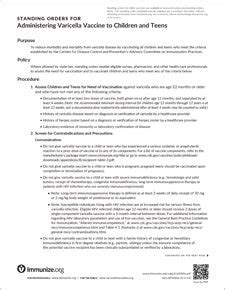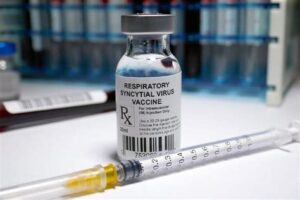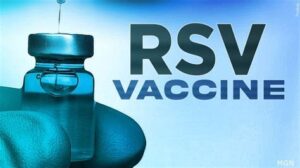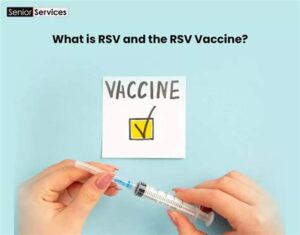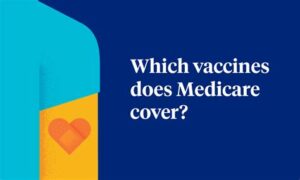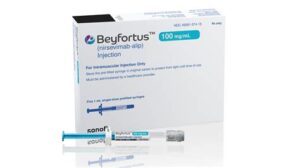Explore Tricare coverage, RSV risk and prevention, and the importance and effectiveness of the RSV vaccine for infants. Stay informed and protect your loved ones.When it comes to safeguarding our health, understanding the resources available to us is crucial. For military families, TRICARE plays an essential role in ensuring access to medical services, including vaccinations that protect against respiratory syncytial virus (RSV). Fed into the broader context of promoting health in infants, the RSV vaccine offers a crucial line of defense against a virus known for its severe impact on young children. This blog post will delve into what TRICARE entails, the risks associated with RSV, and how TRICARE coverage can facilitate access to the RSV vaccine. We will also explore the significance of the vaccine for infants and discuss its overall effectiveness, helping you make informed decisions about your child’s health and well-being. Join us as we navigate these vital topics for military families and their little ones.
What is Tricare?
Tricare is a health care program that provides coverage for active-duty service members, National Guard and Reserve members, retirees, their families, and some former spouses. It is managed by the Defense Health Agency and was designed to ensure that military personnel and their families have access to necessary medical services and supports.
The Tricare program offers several plans that cater to the diverse needs of its members. The primary options include Tricare Prime, Tricare Select, Tricare for Life, and Tricare Reserve Select. Each plan provides different levels of coverage and flexibility, allowing beneficiaries to choose the option that best suits their healthcare needs.
Additionally, Tricare covers a wide array of healthcare services, including preventive care, emergency services, and specialty care. Beneficiaries are encouraged to stay informed about their specific coverage options and to utilize the Tricare website for updates and resources on eligible services, costs, and providers.
RSV: Risk and Prevention
Respiratory Syncytial Virus (RSV) is a common virus that primarily affects infants and young children. It can lead to severe respiratory illness, making understanding the risks and preventive measures crucial for parents and caregivers. RSV is highly contagious and can easily spread through infected droplets when an infected person coughs or sneezes, or via surfaces that have been contaminated.
One of the most significant risks associated with RSV is its ability to cause bronchiolitis and pneumonia in vulnerable populations, particularly in infants less than 6 months old. Premature infants, children with underlying health conditions, and those under 2 years of age are at a higher risk of developing severe symptoms, which can lead to hospitalization and, in some cases, can be life-threatening.
Preventative measures are essential in reducing the spread of RSV.
- Hand hygiene: Frequent handwashing with soap and water for at least 20 seconds.
- Avoiding contact: Keeping infants away from sick individuals and crowded places, especially during RSV season.
- Cleaning surfaces: Regularly disinfecting shared surfaces and toys that may harbor the virus.
- Use of palivizumab: In some cases, healthcare providers may recommend a medication called palivizumab for high-risk infants to help prevent RSV.
By taking these precautions seriously, caregivers can help significantly reduce the risk of RSV infection in young children and promote
Tricare Coverage for RSV Vaccine
When it comes to safeguarding the health of your children, understanding Tricare coverage for essential vaccines is crucial. One noteworthy vaccine that has gained attention recently is the RSV vaccine, designed to protect infants from respiratory syncytial virus, a leading cause of respiratory infections in young children. Parents should be well-informed about what this coverage entails to ensure their children receive the necessary preventive care.
Tricare offers comprehensive health benefits for eligible military families, including vaccinations. The coverage for the RSV vaccine can vary based on the specific Tricare plan you have. Generally, Tricare covers preventive services mandated by the Affordable Care Act at no cost to the beneficiary. This can encompass vaccinations like the RSV vaccine, particularly for high-risk infants. Knowing the specifics of your coverage can help you make informed health decisions for your little one.
| Tricare Plan | RSV Vaccine Coverage |
|---|---|
| Tricare Prime | Covered at no cost when received from a network provider |
| Tricare Select | Covered with cost-sharing, depending on the provider |
In conclusion, it is vital for parents to confirm their specific Tricare coverage details regarding the RSV vaccine. Always consult with your healthcare provider or Tricare representative to obtain accurate information tailored to your plan. By understanding your benefits, you can ensure your child receives timely vaccin
RSV Vaccine: Importance for Infants
The Respiratory Syncytial Virus (RSV) is a significant cause of respiratory illness in infants and young children. It can lead to serious complications, including hospitalization due to bronchiolitis and pneumonia. The need for a preventive measure, such as a vaccine, cannot be overstated, especially for vulnerable populations like infants.
- High Vulnerability: Infants, particularly those under six months old, have developing immune systems that make them more susceptible to severe RSV infections.
- Hospitalization Risks: RSV is one of the leading causes of hospitalization for infants in the United States. The vaccine helps reduce the risk of severe disease and the associated healthcare costs.
- Community Protection: Widespread vaccination contributes to herd immunity, protecting even those who are unable to receive the vaccine due to medical reasons.
The introduction of the RSV vaccine can significantly change the landscape of infant respiratory care and public health. It is essential for parents and caregivers to discuss vaccination options with their healthcare providers
Effectiveness of RSV Vaccine
Respiratory Syncytial Virus (RSV) is a major cause of respiratory illness in infants and young children. The introduction of the RSV vaccine has been a topic of great interest, especially regarding its effectiveness. Research indicates that the vaccine significantly reduces the severity and incidence of RSV infections in infants, safeguarding them against potential hospitalizations.
The effectiveness of the RSV vaccine can be measured through various clinical studies. For instance, trials have shown that infants who received the vaccine had a much lower likelihood of developing severe RSV symptoms compared to those who did not receive the vaccine. This has been particularly crucial during RSV seasons when the virus typically circulates in the community.
Furthermore, the RSV vaccine not only helps protect the vaccinated infants but also contributes to herd immunity. When a substantial portion of the population is vaccinated, the spread of the virus is reduced, indirectly protecting other vulnerable individuals. Thus, the importance of RSV vaccination extends beyond personal health—it is a vital public health strategy aimed at curtailing the spread of this dangerous respiratory virus.
Frequently Asked Questions
What is TRICARE and how does it relate to the RSV vaccine?
TRICARE is a healthcare program for military members, retirees, and their families. It provides coverage for vaccinations like the RSV vaccine, which is important for preventing respiratory syncytial virus infections.
Who is eligible for the RSV vaccine through TRICARE?
Eligibility for the RSV vaccine through TRICARE generally includes infants and young children at high risk for RSV, as well as older adults and individuals with certain medical conditions.
What are the benefits of receiving the RSV vaccine?
The RSV vaccine helps lower the risk of severe respiratory infections caused by the respiratory syncytial virus, which can lead to hospitalization in vulnerable populations.
How can TRICARE beneficiaries access the RSV vaccine?
TRICARE beneficiaries can access the RSV vaccine through their primary care provider or by visiting an approved network pharmacy, depending on specific eligibility and coverage details.
Are there any costs associated with the RSV vaccine for TRICARE beneficiaries?
While TRICARE covers the RSV vaccine, there may be associated costs like copayments or deductibles, depending on the beneficiary’s specific plan and whether they use in-network providers.
What should one do if they have questions about the RSV vaccine under TRICARE?
Beneficiaries should contact TRICARE customer service or their healthcare provider for specific questions regarding the RSV vaccine coverage and eligibility.
Are there any side effects from the RSV vaccine that TRICARE beneficiaries should be aware of?
Like all vaccines, the RSV vaccine may have side effects, including mild pain at the injection site and fever. Serious side effects are rare, but beneficiaries should discuss concerns with their healthcare provider.
